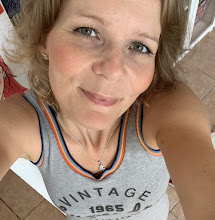Wikis are worth of their name. In Hawaian, verb “wikiwiki” means “hurry” or “quick”. The developer of WikiWikiWeb Ward Cunningham actually took the name of his invention from the language of Hawaian. He wanted to find a quick way to collective publish software models and in the year 1994 he started to plan the simplest possible, still working online database. Since then the use of WikiWikiWeb has increased vastly. In the year 2005 there where 13000 pages in use and they increased with 500 every month. Nowadays there are also other comparable services which all are called with the name wiki. (Leuf and Cunningham 2005, 14-15, 24.)
The operating principle in wiki is to offer a service which is as easy to use as possible considering maintaining and modifying information in the Internet. Establishing a wiki-community (an example) is often free and quickly, it´s easy to maintain, it´s informal and open by it´s operating (an example of wiki-service). The principle of the creators of wiki-services is to incite users to modify their pages freely and tailor functionality with HTML-code almost unlimited. (Leuf - Cunningham 2005, 14-17.) These features explain well the huge popularity of wikis. Today´s thing is absolutely quickness and easiness, there is always too little time and people don´t want to read manuals. When you can code a bit you can make your wiki-community original.
Everything what happens in wiki is characterized by growth and development (Leuf - Cunningham 2005, 322-323). From one page grows easily many and the more the community writes the easier it is to produce text. Wiki is a good tool to learning since with it you can try different ways of distributing information and you get feedback and support from the community. On the other hand the very fundamental openness of wiki and the lack of existing structure can be uncomfortable and even scary according to some people. The totality of the freedom can be pressing. In this also the support of the community is important so that everybody dares to say what they want and don´t get writer´s block.
The functionality of the wiki is based on the means which have taken form commonly in the use of Internet: adaptation of the individual, the politeness of communication and conforming of the common opinion (Leuf - Cunningham 2005, 323). It is relevant in communities that these things are under attention, otherwise there is easily created some differences in opinions, conflicts and misuses. People join to the communities to fulfill their needs: they create relationships, talk, get and distribute information, collect sympathy and support and advises to handling problems (Preece 2001, 34). These features fit well also to wikies since in them the community has some unite goal which is worked in wiki.
In the Internet there is also Wikipedia, which is a global dictionary and one of the most known applications of wiki. The collective and equal standard of activity of the Wikipedia is a foundation to a new model of the society which is based on true democracy, says Niklas Vainio who is a researcher of Hypermedia Laboratory in
Wikipedia is possible mainly because of the community which maintains it has it´s own ways of function and it´s own culture and tradition. Secondly it is easy to join the community, you don´t need to apply for the permission to use the Wikipedia and no registration or revealing your identity is demanded. Thirdly since Wikipedia is based on facts it is easy to collect the information fact by fact and the quality can be checked. This makes it a good tool to team works. (Vainio 2006.) The more comprehensive Wikipedia gets, the more competent possession it achieves.
In every wiki there is the potential of spreading to Wikipedia-like, to be modified by all the users of the Internet. The need of this is another question. Wikis in all the sizes are found and there is a lot of them, from all the topics between sky and earth. Wikis are rised like mushrooms in a rain. Still they are always important to their users, there is something personal in every of them to their creator.
Wiki-webcourse created by the writer of this blog.
Sources:
Leuf, B. & Cunningham, W. (2005), The
Preece, J. (2000), Online Communities: Designing Usability, Supporting Sociability,
Vainio, N. (2006.), "Muuttaako Wikipedia käsitystämme tiedon luonteesta?"
http://www.virtuaaliyliopisto.fi/?node=vy_nakokulma_0606_fin [accessed 15 Oct 2007]

No comments:
Post a Comment